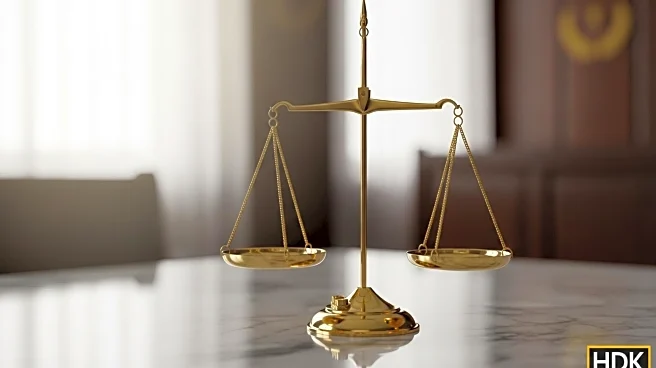What's Happening?
A U.S. appeals court has ruled that most of President Trump's tariffs are illegal, challenging a key aspect of his international economic policy. The court's decision allows the tariffs to remain in place until October 14, providing the Trump administration time to appeal to the U.S. Supreme Court. The ruling addresses tariffs imposed under the International Emergency Economic Powers Act, which Trump used to justify tariffs during national emergencies. The court found that the Act does not explicitly grant the president authority to impose tariffs, a power traditionally held by Congress. This decision could lead to significant changes in U.S. trade policy and economic strategy.
Why It's Important?
The court's ruling on Trump's tariffs is crucial as it questions the legality of using tariffs as a tool for international economic policy. Tariffs have been a central part of Trump's strategy to renegotiate trade deals and exert political pressure on trading partners. The decision could lead to increased uncertainty in financial markets and impact U.S. trade relations. If upheld, the ruling may limit the executive branch's ability to unilaterally impose tariffs, reinforcing Congressional authority over trade policy. This could have significant implications for U.S. industries reliant on international trade and for the broader economic landscape.
What's Next?
The Trump administration is expected to appeal the decision to the Supreme Court, potentially leading to a legal showdown over the president's economic policies. The outcome of this appeal could redefine the scope of presidential powers under the International Emergency Economic Powers Act. Additionally, the administration may seek alternative legal avenues to maintain the tariffs, which could further complicate U.S. trade relations and economic policy. Stakeholders, including businesses and policymakers, will be closely monitoring developments as they could affect trade dynamics and economic stability.









